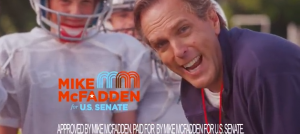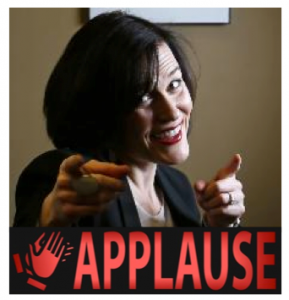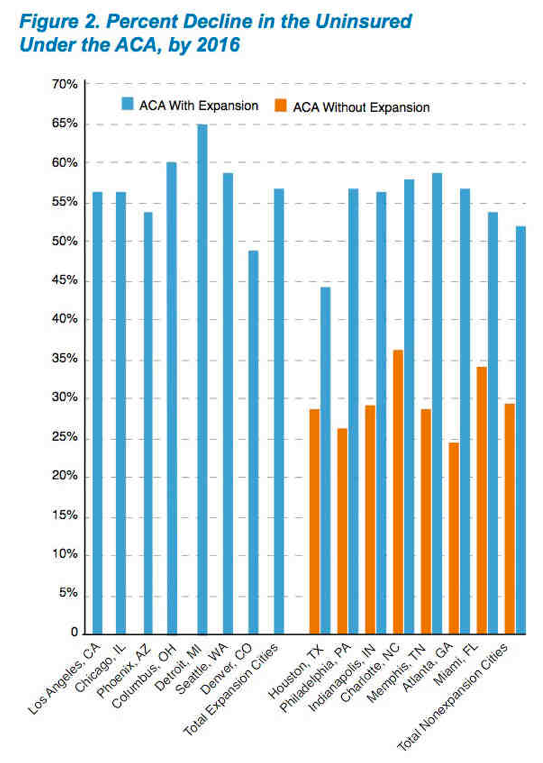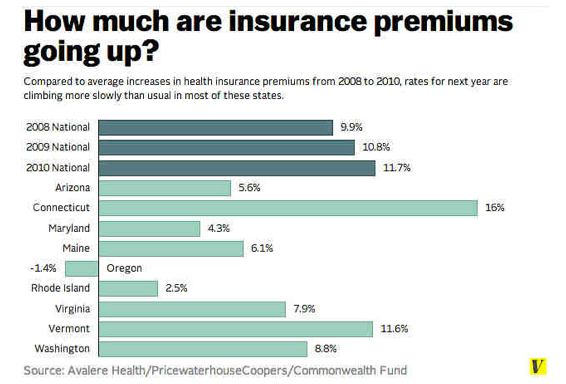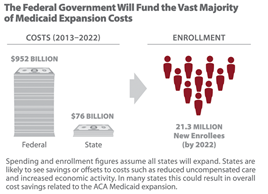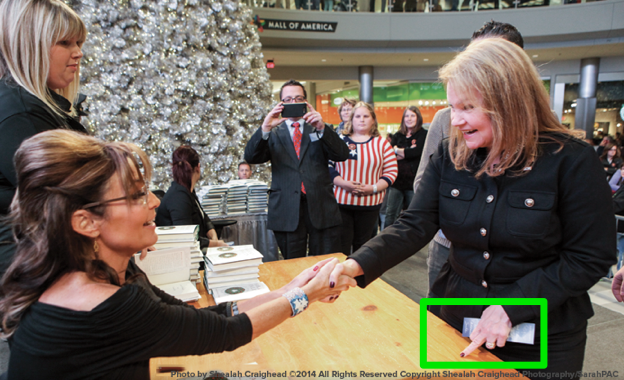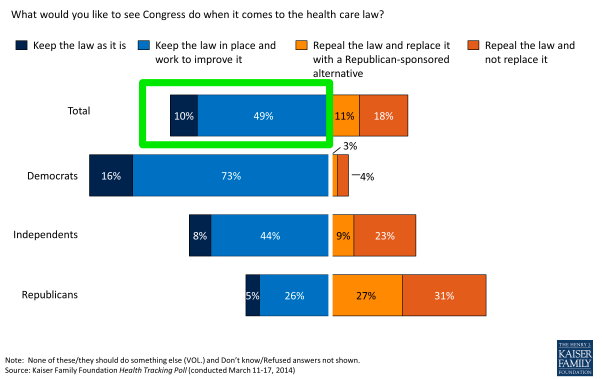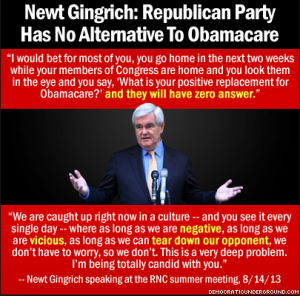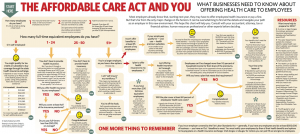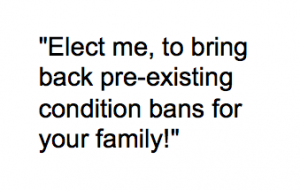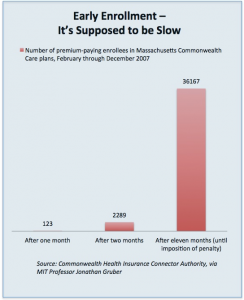 Former South Dakota Governor Mike Rounds (R-Pierre), has been running for U.S. Senate the modern way. The conservative insurance executive been jetting around the country to raise money from ultra-wealthy donors. Governor Rounds also has the billionaire Koch Brothers as covert sidekicks, bringing their dark money to the state to do his dirty work.
Former South Dakota Governor Mike Rounds (R-Pierre), has been running for U.S. Senate the modern way. The conservative insurance executive been jetting around the country to raise money from ultra-wealthy donors. Governor Rounds also has the billionaire Koch Brothers as covert sidekicks, bringing their dark money to the state to do his dirty work.
 Meanwhile, Rounds’ Democratic opponent Rick Weiland has been campaigning the old fashioned way. He is staying grounded, traveling the dusty byways in a minivan. Weiland is the first candidate in South Dakota history to campaign face-to-face in all of the state’s 311 towns. A couple of them are not metropolises.
Meanwhile, Rounds’ Democratic opponent Rick Weiland has been campaigning the old fashioned way. He is staying grounded, traveling the dusty byways in a minivan. Weiland is the first candidate in South Dakota history to campaign face-to-face in all of the state’s 311 towns. A couple of them are not metropolises.
Getting to all 311 towns is not just an impressive tactical feat, it’s also serves as a statement about the candidate’s values. In a state that prides itself on hard work and personal connections, South Dakotans are noticing the hardest working man in the political business.
At one point, Weiland tried to get Rounds to join him on the gravel roads. He challenged Rounds to reject big national money and discourage dark money, and to replace wall-to-wall campaign ads with a lengthy series of Lincoln-Douglas style debates in small towns around the state. Rounds rejected Weiland’s suggestion, and returned to the fundraising circuit.
To stress his populist “Take It Back” campaign theme on the road, Weiland sometimes belts out parody songs in an imperfect voice. When you are being badly outspent, you need to get creative to get noticed and remembered. Weiland has long liked to relax by making music with his family and friends, so a few months back he rounded them up to videotape a well-received parody of “I’ve Been Everywhere” to chronicle his epic campaign journey. Today, Weiland released a parody sung to the tune of Miller’s “King of the Road.” An excerpt of the lyrics:
My vote’s not for sale or rent,
I just won’t listen to the one percent.
I’m not campaignin’ in corporate jets,
I’m meetin’ voters in luncheonettes.
I’ve been in three hundred and eleven towns.
Still lookin’ for that guy named Rounds.
I’m goin’ everywhere I can, man. Bring on the road!
 Corny? You betcha. But it’s on-message, fun and unique enough to get noticed and remembered amidst the election season media clutter. The self-deprecating Weiland readily acknowledges he is no threat to be inducted into the Country Music Hall of Fame, but he is determined to connect with South Dakotans on a deeper level than Rounds’ formulaic political ads do. (In one of his pre-fabricated TV ads, Rounds famously imported stock photography of faux Dakotans, including one woman from, ahem, Paris, France.)
Corny? You betcha. But it’s on-message, fun and unique enough to get noticed and remembered amidst the election season media clutter. The self-deprecating Weiland readily acknowledges he is no threat to be inducted into the Country Music Hall of Fame, but he is determined to connect with South Dakotans on a deeper level than Rounds’ formulaic political ads do. (In one of his pre-fabricated TV ads, Rounds famously imported stock photography of faux Dakotans, including one woman from, ahem, Paris, France.)
To the surprise of many, the South Dakota U.S. Senate race is in play. A May 2014 Public Policy Polling (PPP) survey shows Governor Rounds, a long time political institution in the state, stalled out with just 40% support, while the lesser known Weiland is already within striking distance at 28%. In a small state where only a few hundred thousand people will vote in a non-presidential election, Weiland’s hyper-local approach to campaigning could make a difference. The Koch Brothers would not have set up shop in a deep red state if they thought their guy Rounds was safe.
But can Weiland’s unabashedly populist message really sell in a solidly conservative state? The PPP survey says it can. It found that South Dakotans, by a 15-point margin, prefer Weiland’s “Medicare for all” proposal to Rounds’ call to eliminate the Affordable Care Act. By a 24-point margin, South Dakota voters also reject Rounds’ embrace of the scorched earth federal budget proposed by conservative Congressman Paul Ryan (R-WI).
The wild card issue in the race could be something called EB-5. Rounds continues to take on heavy tri-partisan criticism for his championing of the state’s scandal-plagued EB-5 program, a controversial economic development initiative that allows wealthy foreign investors to jump to the head of the citizenship line. A steady stream of news coverage has focused on missing money, the death of a key figure, and a number of investigations.
Finally, Weiland could further close the gap as three prominent conservative candidates on the November ballot carve up South Dakota’s conservative vote. Former Governor Rounds, former Republican U.S. Senator Larry Pressler (I-Sioux Falls), and former Republican State Senator Gordon Howie (I-Rapid City, Tea Party-backed) are all competing for conservative voters. Political chameleon Pressler occasionally tries to impersonate a moderate, but with a 100% conservative rating from American Conservative Union in his last year in the Senate, the news media shouldn’t let him get away with that. With a fragmented conservative electorate, a lone Democrat on the ballot could eke out a victory in November.
Despite all of this, some still are writing off Weiland. In the July before election day, nobody in Minnesota thought Paul Wellstone or Jesse Ventura had a chance to win either. But a populist message and an entertaining approach helped both of them sneak up on their opponents. Could the warbling Weiland be the next upper midwestern candidate to use a similar approach to shock the world?
– Loveland

